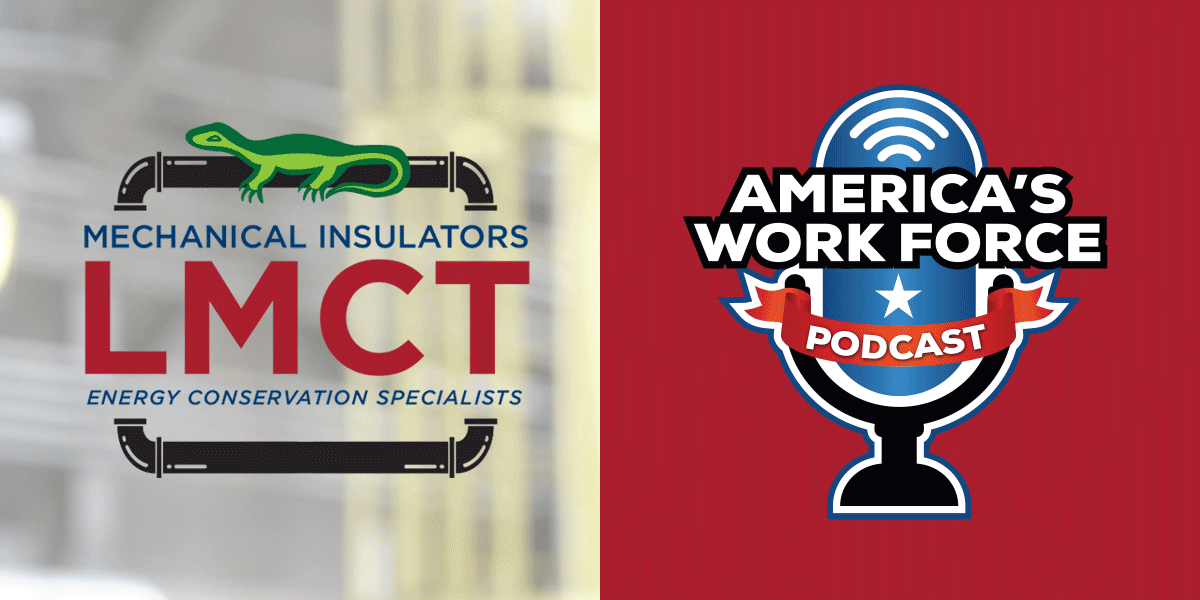The construction industry is one of the deadliest in America, not only due to the nature of the work, but also because of its high suicide rate.
Once considered a taboo subject, building trades leaders are now addressing the subject and are working to educate people about mental health issues.
Mechanical Insulators LMCT Executive Director Pete Ielmini appeared on America’s Work Force Union Podcast, a national, labor-focused podcast, to discuss the causes of mental health issues and what the Mechanical Insulators LMCT is doing to prevent suicide.
Before getting to the main topic, Ielmini first discussed the importance of Workers’ Memorial Day, the annual day honoring fallen workplace Brothers and Sisters, saying the day is important to the building trades due to the omnipresent dangers of the industry.
Preventing suicide in construction
Although the macho man stereotype in the building trades is subsiding, Ielmini insisted there is more work to be done. While the stereotypes are slowly going away, suicide in the construction industry has drastically increased in the past 20 years.
Ielmini said the LMCT is making progress. Mechanical insulation contractors are working with contractors to ensure mental health talks make their way to the jobsite.
While one the COVID-19 pandemic is one factor some people believe could have played a roll in the increased rate of suicides, Ielmini disagreed. He pointed to vast amounts of data from the past 20 years, which he explains correlates with increased drug abuse – including prescription medications and illicit drugs.
Building trades associations now realize the severity of the problem and are developing programs to address it. There are confidential and free resources available for those struggling with their mental health. Ielmini highlighted a statistic that found that half of all people struggling with mental health reach out for help, and of the half, 80 percent of people get the help they need.
Mechanical Insulators LMCT and suicide prevention
The LMCT is working with contractors to develop training programs to help contractors better assist tradesmen and tradeswomen who are struggling with mental health.
On Workers’ Memorial Day, Ielmini said tradesmen, tradeswomen and contractors need to work together to prevent suicide in the construction industry. Organizing time to talk about mental health during jobsite safety talks may help one or more struggling workers.
America’s Work Force Union Podcast is a national, labor-focused podcast that gives a voice to the working people of the U.S., the leaders who represent them and the business owners who employ them.
You can listen to the entire episode in which Ielmini appears below:
